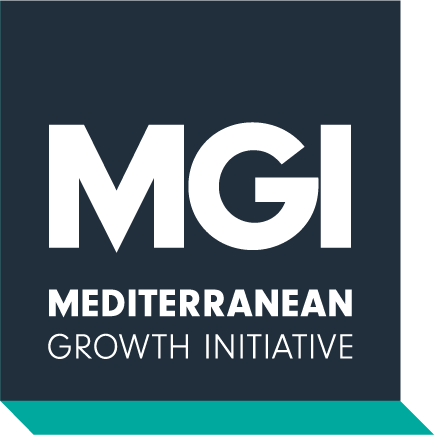MGI Weekly round-up | June 16th 2017
Stories MGI has been tracking this week:
- Finally, a deal for Greece
- IMF concludes euro area consultations, issues warning for Italy, France, and Spain
- Lebanon to hold May 2018 elections
As always, we also feature content from the MGI data and analysis platform, a summary of the week’s key statistical releases, and a look ahead to upcoming data releases. This week we highlight Lebanon’s economic performance over the eight years since its last elections were held.
Finally, a deal for Greece
On thursday, euro area finance ministers met in Luxemburg and finally agreed on a 8.5 billion euro deal to bail out Greece. The deal will save Athens from defaulting on debt repayments in July. The IMF will join the bailout, offering Athens slightly less than $2 billion in an arrangement spanning to mid-2018.
"There is now light at the end of the tunnel" Greece's finance minister Euclid Tsakalotos told reporters after the meeting. Germany’s Wolfgang Schaeuble stressed the need for Greece to carry through with reforms to improve its competitiveness and regain access to debt markets. The deal will be discussed in Germany’s parliament on Friday.
MGI, for one, is looking forward to a period where Greece features less prominently in the region’s economic and political headlines.
IMF concludes euro area consultations, issues warning for Italy, France, and Spain
On Thursday, the IMF concluded its Article IV consultations with euro area countries and issued its concluding statement. The review had many positive things to say about the strength of the euro area’s recovery and its favorable political environment. However, IMF staff alluded to some bitter medicine that may be required for several countries in the Mediterranean region.
The statement noted that high-debt countries with little or no fiscal space such as Italy and France should move toward gradual fiscal consolidation, implemented in a manner that does not subtract from growth.
The Fund also noted that the Euro area’s largest net external borrowers, namely Italy and Spain, need to undertake further labour and product market reforms to keep productivity growth above wage increases in order to finance their current account deficits.
Lebanon to hold May 2018 elections
On Wednesday, cabinet members approved a new law to extend the parliamentary term until May 2018, after which an election will be held. Ministers announced the law and intended election after recent disputes over the country’s election law pushed Lebanon into a parliamentary crisis ahead of the current term’s end on June 20th.
The new law will introduce a proportional representation system and change the number of districts from which lawmakers are elected. The law still must be passed by the legislature, which is expected to happen on Friday, after rival parties agreed to the draft earlier this week. The elections will be the first to be held in Lebanon in eight years.
Featured content from the MGI.online data and analysis portal
This week exploring Lebanon at a glance, we can see the prominent trends in Lebanon’s economy in the years since its last election. GDP growth has been relatively robust compared to other economies in the region, averaging 2.3% over the period. Unemployment fell dramatically following the election but has risen slightly over the last three years. After a period of disinflation, prices have crept up, peaking at 5.1% in March 2017, but are on the decline again in recent months.
The week in data
May’s inflation—or lack thereof— was the major story this week, with price growth slowing nearly universally across reporting countries. Some highlights:
- Growth of consumer prices in France slowed to 0.8% in May after previously rising 1.2% in April http://bit.ly/2ry1s3d
- Inflation in Italy fell to 1.4% in May, down from 1.9% in April, confirming Istat's flash estimate http://bit.ly/2szdERu
- Inflation in Spain for May 2017 stood at 1.9%, down from 2.6% in April http://bit.ly/2t0I5wQ
- Prices in Israel rose 0.8% in May, driven by clothing and footwear and fruits and vegetables http://bit.ly/2rxlJGm. Israel's current account balance in 2017Q1 came in roughly as market expected at $2.5B, down from $3.2B in 2016Q4 http://bit.ly/2s9nyGd
Looking ahead
It will be a relatively slow week until Friday, when Israel’s unemployment rate and France’s final estimate for GDP growth in 2017Q1 are to be published. MGI’s complete data release schedule can be viewed at https://www.mgi.online/release-calendar/.
Monday 19 June, 2017:
- Israel M1 money supply May
- France treasury actions
Tuesday 20 June, 2017:
- Greece current account for April
- Spain balance of trade April
- Israel manufacturing PMI for May
- Turkey central government debt for May
Wednesday 21 June, 2017:
- Israel industrial production for April
- Spain industrial orders for April
Thursday 22 June, 2017:
- France business confidence for June
- Turkey consumer confidence
Friday 23 June, 2017:
- France GDP growth 2017Q1, final estimate
- France Market services and manufacturing PMI for June, flash estimate
- Israel unemployment rate for May
- Turkey business confidence for June
- 2Italy industrial sales and orders for April
